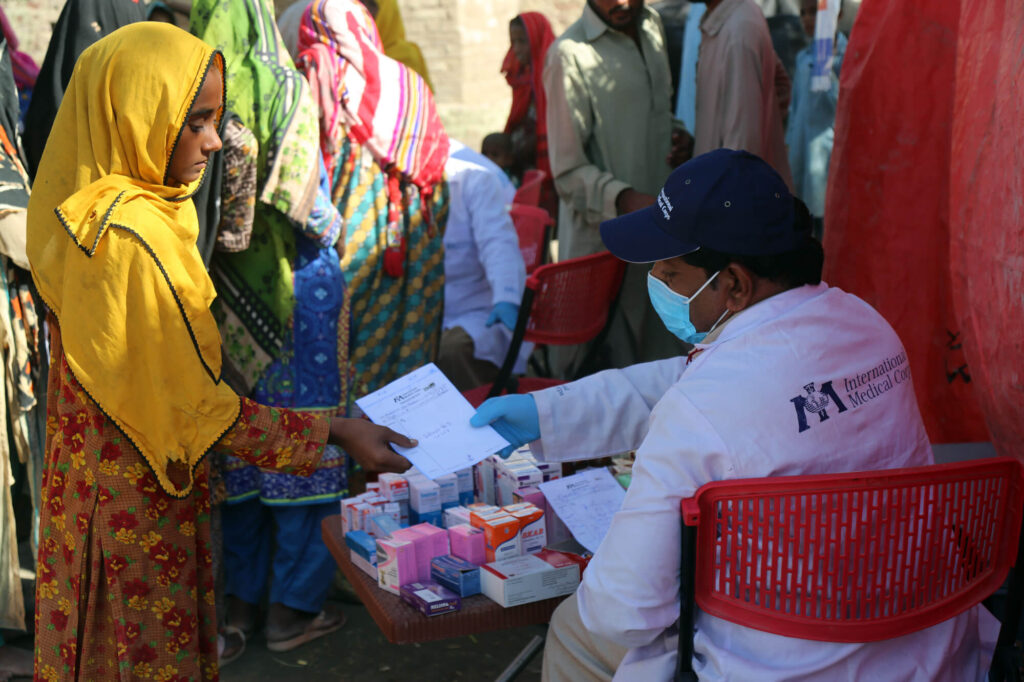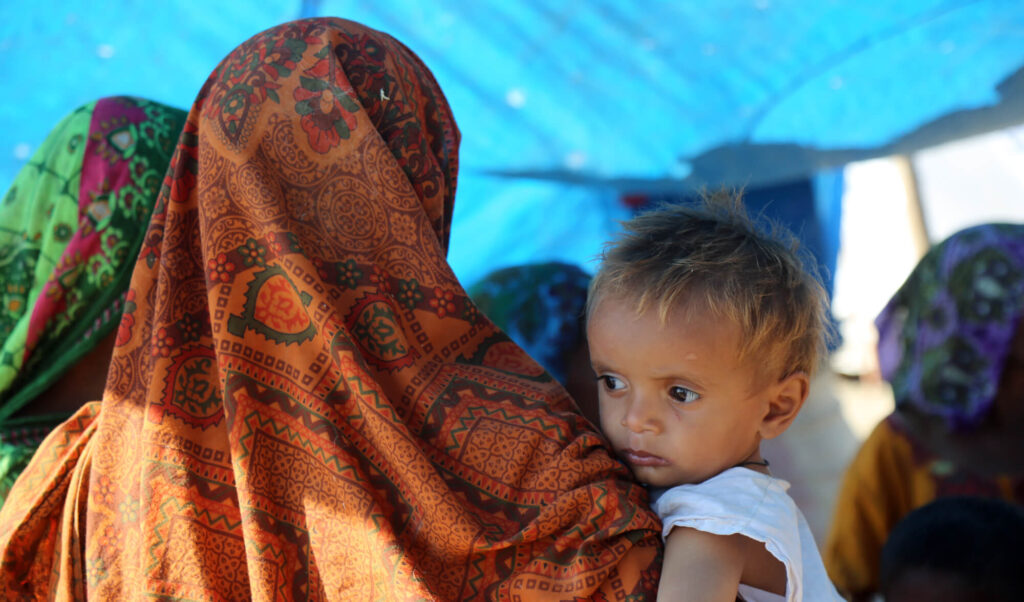As a communications officer with International Medical Corps in Pakistan, I recently had the opportunity to visit flood-affected communities in Union Council Phuladiyon, in Sindh province, one of the areas hit hardest by monsoon flooding last year. I met with people, listened to what they had experienced and saw how our mobile medical teams are helping them to cope with new and ongoing health issues.
Even though it’s been several months since the flooding emergency, the area is still inundated by floodwater. Many people stay in tent villages on the roadside, which is on higher ground, while those who have returned to their hometowns face multiple challenges, including lack of healthcare, food insecurity and the absence of safe drinking water.
When I reached the International Medical Corps mobile medical team in Phuladiyon, one of our doctors, Dr. Trishnna, was seeing patients who were gathered around her in hordes.
“Give your son a banana and oral rehydration salt (ORS) in clean water. It will help him with diarrhea,” Dr. Trishnna tells Pathani, a woman who has brought her three-year-old son, Sajjad, to the mobile clinic.
Pathani had been living in a tent village with her husband and three children for more than four months. She just returned to her hometown, where she and her family, along with many other returnees, are facing new problems with each passing day. When I approach Pathani to talk about her experience with our mobile medical team, she tells me how the floods had devastated her life.
“Our house was made of bricks, but those bricks couldn’t save our belongings,” Pathani explains. “We lost two goats to the floods. I had a garden next to my kitchen where I used to grow vegetables. There were potatoes, onions, green chilies and tomatoes in the garden, and the floodwaters swept it all away. Our standing cotton crop was submerged in front of our eyes. All we could do was grab a few clothes and run from the village to save our lives.”

Pathani also tells me that she had walked for more than two hours to reach our mobile team’s site to receive healthcare. She is now worried about how she will provide ORS and clean water to her son going forward.
“The doctor says to give him clean drinking water. Where will I get clean water and ORS?” Pathani asks me.
She’s pleasantly surprised when I inform her that International Medical Corps provides medicine, as well as aqua tabs that purify water. Her eyes sparkle with the news that she will get ORS from our onsite pharmacist.
“This is the first time I have received any medical help since floods hit the area,” says Pathani. “It is only International Medical Corps that has come to this area and helped us in these challenging times.”
Exhausted from the long journey to the camp, Pathani sits with her son and asks her daughter to collect the medicine from our pharmacist.
During my visit, it’s painful to see that Sajjad is not the only child suffering from watery diarrhea. Almost every other child visiting the health facility from a flood-affected community complains of watery diarrhea. When I ask Dr. Trishnna why this is the case, she tells me that people often drink stagnant floodwater and practice unhygienic behaviors, leading to such health problems as diarrhea, especially among children.
“In addition to providing aqua tabs, we also provide soap for handwashing and educate people on how to use it before and after critical times,” Dr. Trishnna explains.
International Medical Corps continues to respond to the urgent needs of flood-affected communities in Pakistan. Since last year’s monsoon floods struck the country, we have provided health consultations to more than 81,000 people in Khyber Pakhtunkhwa and Sindh provinces. We also provide potable water through tankers and a reverse-osmosis plant that purifies floodwater and makes it drinkable.
